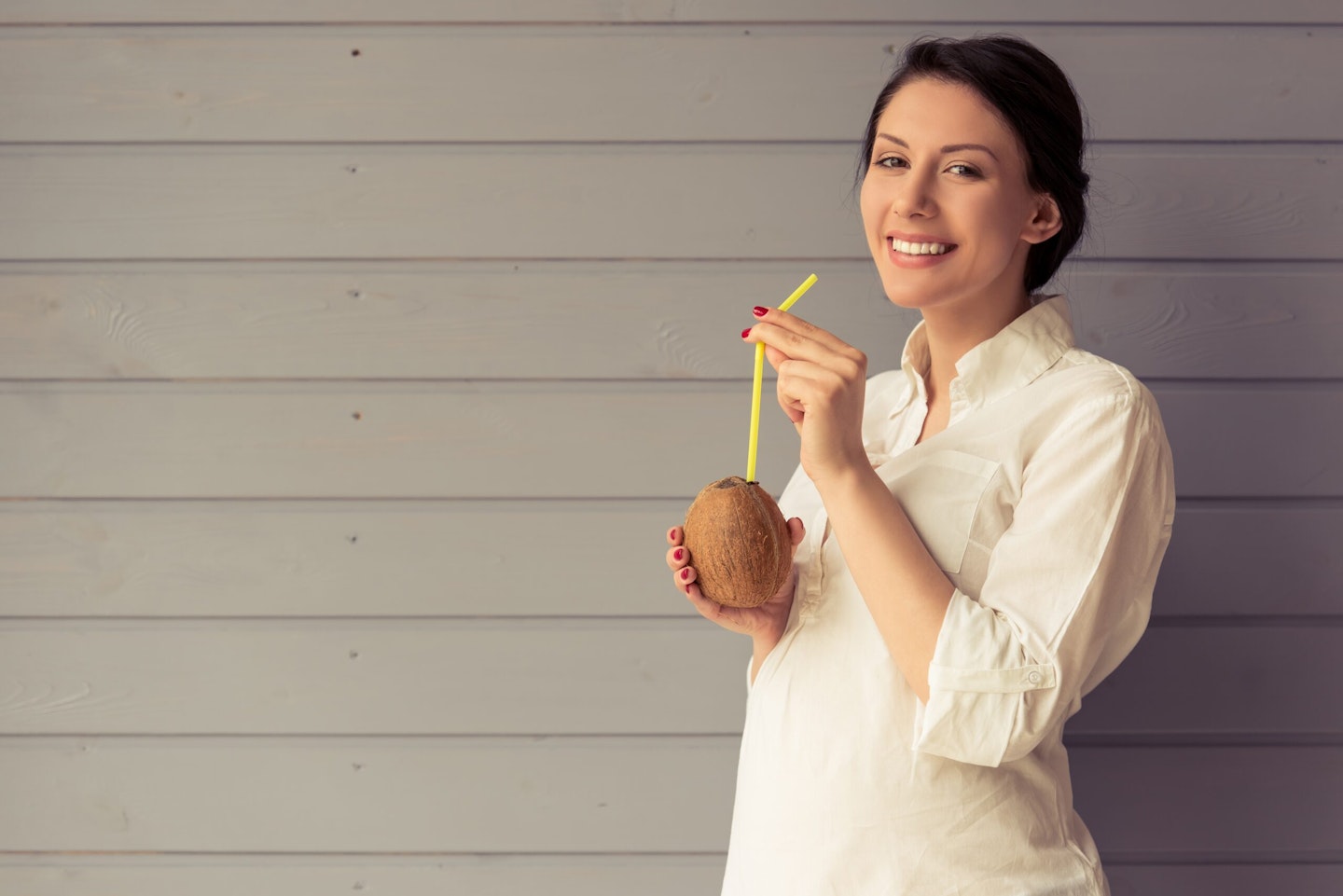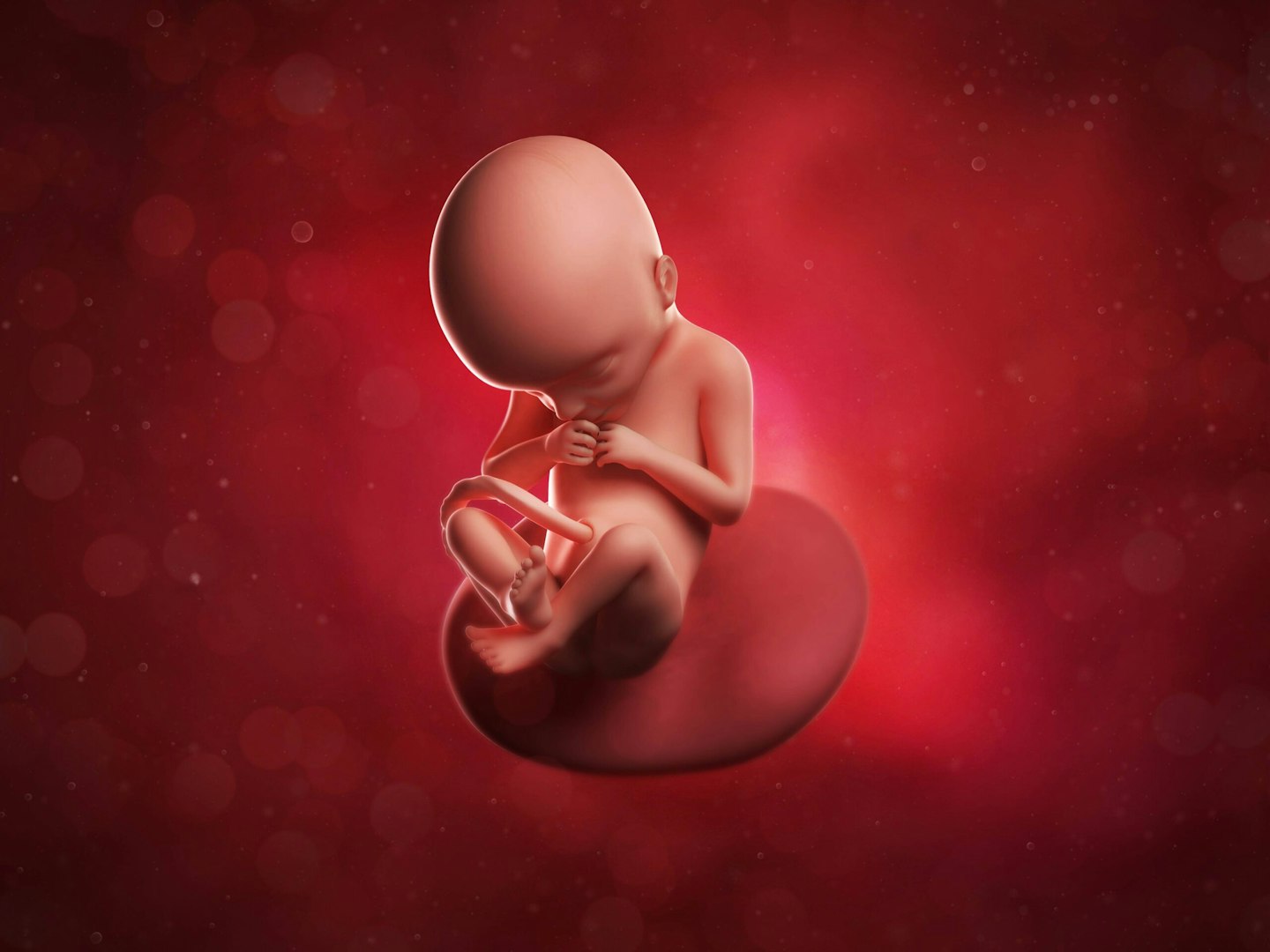This piece has been medically reviewed and written with the assistance of Katherine Walker, Service Development Manager at NCT.
At 22 weeks pregnant, your baby looks more like a newborn than ever before. Your tiny baby's face is now fully formed, and they have all of the lovable features that you will see when you finally meet. Even their hair is now beginning to sprout, and although their skin is still translucent, it's now starting to develop layers.
Around this time, you might start feeling your little one making themselves known more consistently. Those gentle kicks, rolls, and stretches are becoming a regular part of your day—like having a tiny butterfly fluttering around in your tummy! It’s perfectly normal if you’re not feeling movement all the time yet, and your partner might still have to wait a bit longer to catch those kicks. But if you haven’t felt any movement at all by 24 weeks, it’s a good idea to check in with your doctor or midwife, just for peace of mind.
Here are some symptoms you may begin to experience and everything you need to know about your body and your baby at 22 weeks pregnant.
How many months pregnant is 22 weeks:
Counting your pregnancy in weeks and months can get confusing. You are five months pregnant now. Congratulations. Between 20 and 24 weeks, you're at the halfway mark!
In the fifth month of your pregnancy, you'll probably feel your baby moving inside you a lot more (which is super exciting), and you might begin to feel more symptoms.
How big is my baby at 22 weeks pregnant?
If you love food comparisons, then your baby is the size of a small coconut—if not, they're now the size of a small doll. Your little one is about 27.8 cm long (head to heel) and weighs approximately 430 grams.

Baby Development at 22 Weeks Pregnant:
Your baby’s legs and arms are stretching out and getting more in proportion now, making them look even cuter than they did in those black-and-white scans. Their sense of touch is coming along nicely; believe it or not, they might already be tuning in to sounds outside the womb.
So, why not introduce them to your favourite tunes (yes, even Taylor Swift counts!), sing to your bump, or treat your belly to some soothing stretch mark cream or a bump mask? It’s also an excellent time for your partner to start chatting to your little one—they might even get a tiny flutter in response. With the inner ear fully developed, your baby’s getting the hang of balance and orientation, too.
What’s my baby doing at 22 weeks?
Your baby is starting to look more like a newborn than ever, with distinct lips, eyelids, eyebrows, and even tiny tooth buds.
Your little one will also now be able to perceive light and dark better, even though her eyelids are still fused. Her hearing’s improving too: she’ll be able to hear your heartbeat, voice and even the noises of your blood circulating and your stomach gurgling.

22 Weeks Pregnant Symptoms to look out for
Increased libido
This is one of our favourite symptoms because, for once, it isn't all doom and gloom! At 22 weeks, some mums-to-be may notice another surge in their libido due to the raging hormones!
Stretch marks
Scars/stretch marks are caused when your skin stretches and grows too quickly, so it tears beneath the surface. Stretch marks will sadly never disappear, but they fade in colour. There are loads of products designed to prevent or improve stretch marks, though, that will have many other lovely benefits, such as a relaxing smell or moisturised skin!
Swollen feet
This has been a common symptom for the last few weeks. Pregnancy causes an increase in your general bodily fluids. Minor swelling is normal and will die down after you give birth. If the swelling is excessive, painful or sudden, then, as always, contact your doctor.
Vaginal discharge
Did you think you had got rid of this one?! We know this symptom isn't fun and can leave you feeling embarrassed. It is down to increased blood flow. If you do have an increased libido, don't let this stop you as it is completely normal, and it might even make things easier!
Thicker, long and more beautiful hair
Yup, along with all the not-so-pleasant pregnancy symptoms, there are some great ones, too. During pregnancy, your body sheds hair more slowly than it did before, giving your hair the appearance of being thicker and more lustrous than ever.
More body hair
Unfortunately, the positives about the hair on your head also apply to your body hair (there has always got to be a downside, hasn't there?!), with hormones causing more hair on your face (usually on your chin, upper lip, cheeks and jaw). You might also spot some on your stomach, arms, back and legs. You can tweeze, wax and shave these excess hairs if you’re not too fond of their appearance.
Bigger, darker nipples
You might notice some changes in your breasts, namely bigger, darker nipples and areoles, more pronounced bumps on your areoles, and more noticeable veins on your breasts.
Discoloured skin
You might find some patches of darker skin on your face due to the increased melanin in your body; these usually fade after birth. Make sure you’re protecting your face with sunscreen with a high SPF even in winter, wear a hat and stay out of the sun in the strongest hours.
Backache
This is a chronic symptom of pregnancy. Your back hurts due to the pressure your baby presses down on you and, of course, the extra weight. Try pregnancy yoga, massage or sleeping with a special pregnancy pillow, which can offer more support to achy joints.
Belly button changes
A lot of women find that if they have an 'innie' belly button, it pops out during pregnancy. This is down to your expanding stomach and might feel and look weird. We can assure you that it will go back to normal after birth!
Changing fingernails
Different women experience different symptoms: some find their nails grow faster than usual, some find theirs are harder than usual, and others notice theirs get softer or more brittle.
What is my body doing at 22 weeks pregnant?
Your tummy’s getting bigger and bigger - but it’s not the only thing changing.
Your baby bump is becoming more prominent as your uterus continues to expand. You might notice it sitting higher up, making your pregnancy more visible to others. This is a time when maternity clothesmight become your best friend.
You might have noticed your feet swelling more than you might like. This is due to pregnancy swelling, or oedema, as well as the pregnancy hormone relaxin, which loosens the ligaments in the feet so that the bones under them spread.
As your uterus grows, it may start to press against your diaphragm, making it a bit harder to catch your breath, especially after physical activity. This is normal, but be sure to take it easy and rest when needed.
Looking After You at 22 Weeks Pregnant
Your feet can increase by half or even whole shoe size while pregnant. Don’t try and squeeze into your old kicks: choose a bigger, more comfortable pair that you can wear throughout your pregnancy, with no more than a two-inch heel. It’s hard enough as it is to keep your balance with your pregnancy belly, let alone with sky-high stilettos! But don't worry, of course, we have already compiled an extensive list of the best pregnancy shoes for swollen feet.
What to do this week:
-
Slow down: It’s quite common to feel dizzy or light-headed during pregnancy – that’s because so much blood is being directed to your womb to help with your baby’s development. Get yourself into the habit of getting up slowly so the blood flow can adjust gradually.
-
Keep snacking: Make sure you eat regular healthy snacks (carry some pregnancy superfoods like nuts or raisins or fruit like a banana, apple or seedless tangerine in your bag) and stay hydrated to keep energy levels up and ensure your blood sugar doesn’t rise or fall too quickly. If you feel faint or dizzy, sit down and put your head between your knees so the blood can return to your brain; the dizziness will soon disappear.
What our expert says about being 22 weeks pregnant
Katherine Walker, Service Development Manager at NCT, said: ”You may have a bit more energy by this stage of your pregnancy although some women find their sleep can be disrupted and some experience vivid dreams - this is down to the pregnancy hormones.
“By week 22 of pregnancy your baby will begin to gain weight more quickly. There is still plenty of room for them to move their whole body around and you may begin to notice some patterns to their movement at particular times of day, or night!”
Your week 22 FAQs answered:
How big should my bump be at 22 weeks pregnant?
A typical belly at 22 weeks pregnant will be around 20 to 24 centimetres from the pelvic bone to the top of the uterus.
How much should my baby be moving at 22 weeks?
Most women start to feel their baby moving between 18 and 20 weeks pregnant, yet how strong or how much you feel these little flutters completely depends on your pre-pregnancy weight and how your baby is lying.
About our expert
The National Childbirth Trust (NCT) is the UK’s largest charity for parents. It offers support through every stage of pregnancy, birth, and early parenthood. The trust provides antenatal and postnatal courses, local meet-ups, and a range of resources to help parents feel more confident and connected.
Hannah Carroll is our Senior Digital Writer at Mother&Baby. In her capacity, she curates top-notch listicles, crafts insightful how-to guides, and delivers expert product reviews. As a mother of three, Hannah draws upon her comprehensive understanding of all facets of family life to bring true insight into all the products that make running a home easier.
